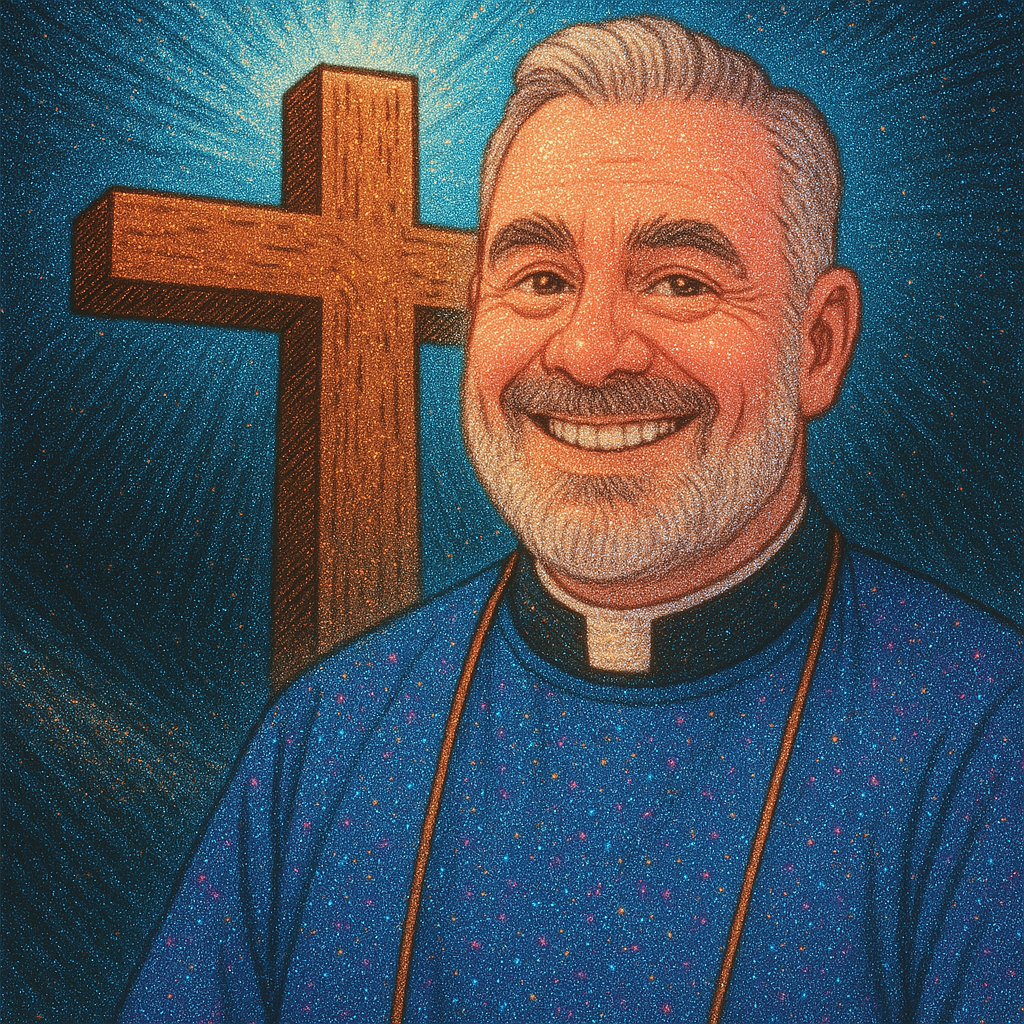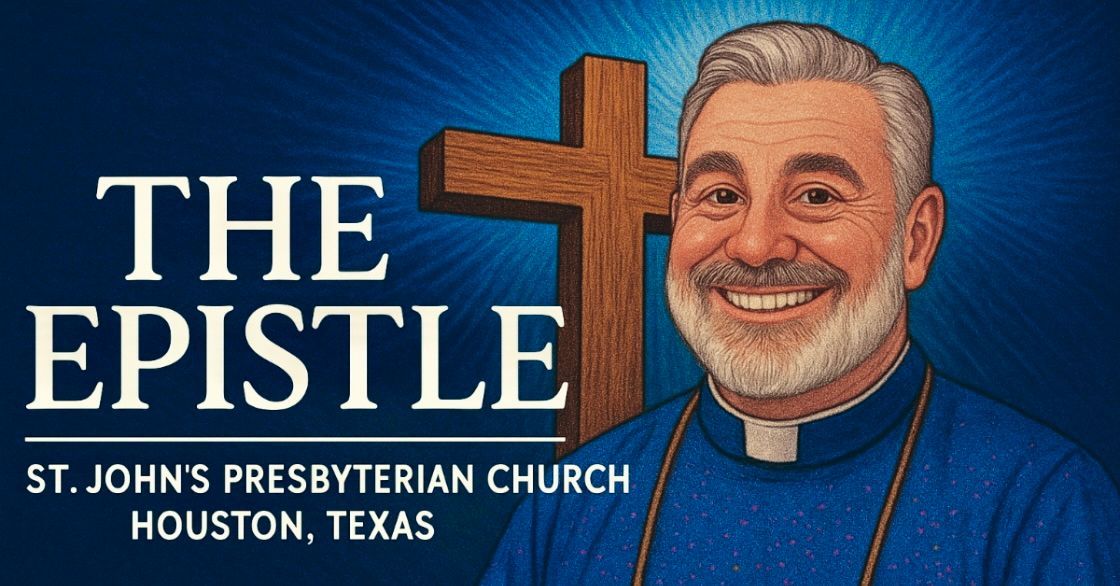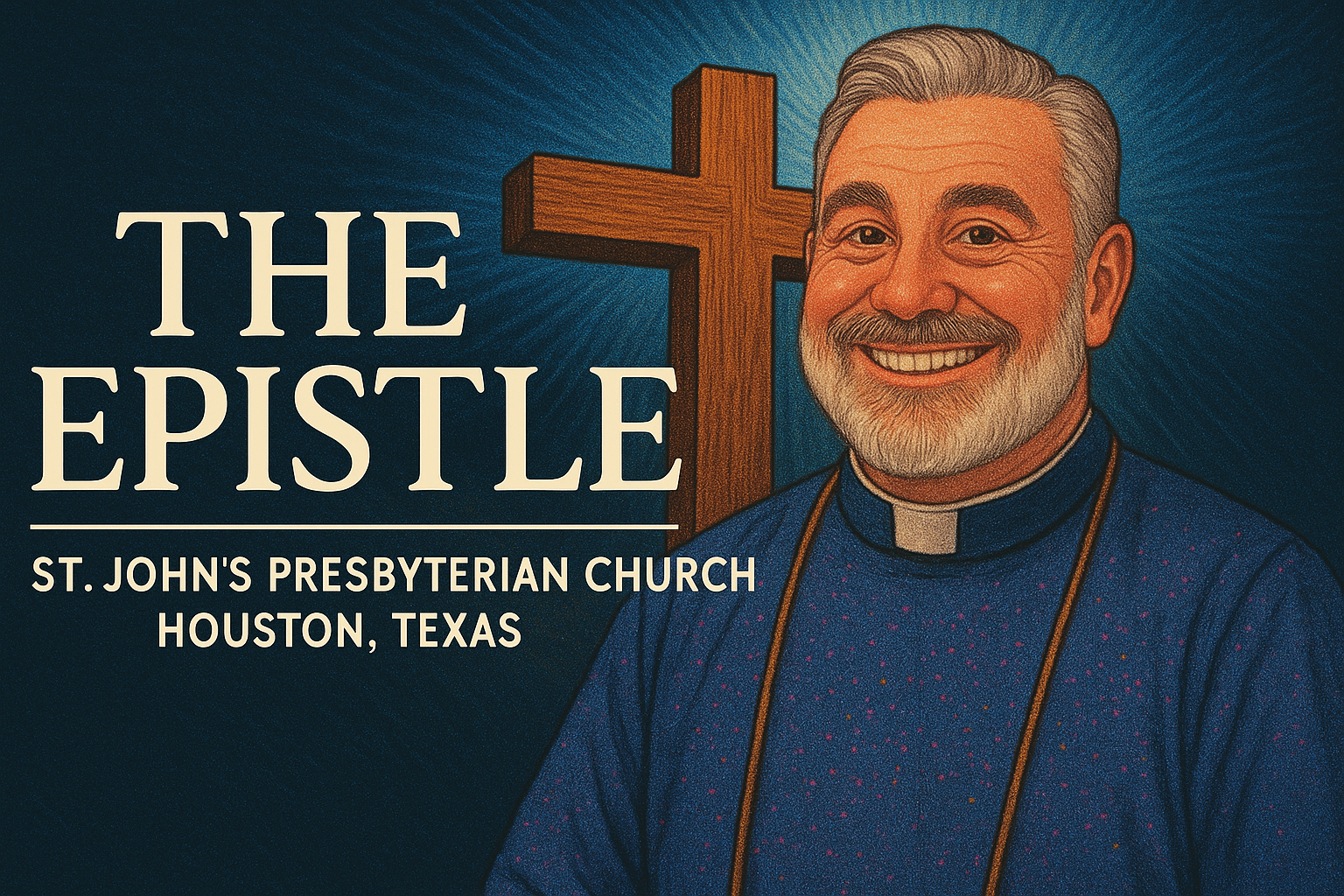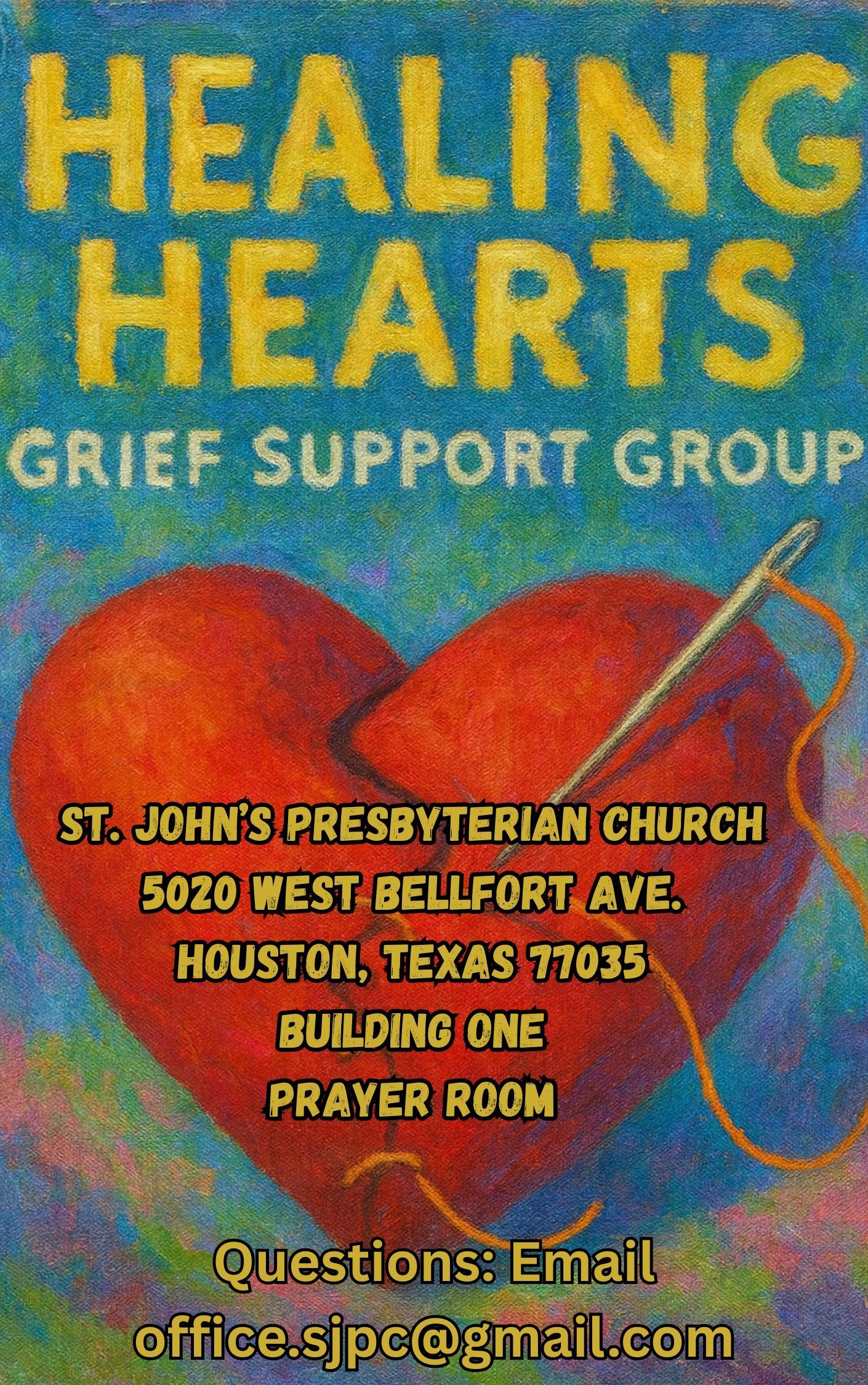Presbyterian Beliefs: Core Values That Guide St. John's Presbyterian
I'm Pastor Jon, and I've been in ministry long enough to know that most people don't choose churches based on theology. They choose based on feelings, convenience, or whether their kids like the youth group.
That's fine as far as it goes. But here's the thing: what a church believes shapes everything else. The music you sing, the sermons you hear, how you treat each other, whether you actually serve your community or just talk about it.
So if you're looking at St. John's Presbyterian in Houston, or if you're just curious about what Presbyterians actually believe, let me walk you through it. Not in complicated theological language, but in plain English that explains why these beliefs matter.
Why Beliefs Matter at All
Some people think beliefs are less important than just being nice and loving everyone. I get the appeal of that. Theology can feel dry and divisive. Can't we all just get along?
The problem is that "being nice" doesn't actually tell you much. Nice to whom? In what ways? According to whose standards?
Your beliefs answer those questions. They give you a framework for understanding God, yourself, other people, and how to live.
Bad theology leads to bad practice. Churches that believe God wants them rich end up exploiting poor people. Churches that believe God hates certain groups end up causing real harm. Churches that believe nothing in particular end up standing for nothing when it matters.
Good theology, on the other hand, creates communities where grace flows freely, where people genuinely care for each other, where service matters more than success.
That's what Presbyterian beliefs do. They've been tested over centuries. They're rooted in Scripture. They produce communities that worship well and serve well.
God's Sovereignty: The Foundation of Everything
Here's the most fundamental Presbyterian belief: God is sovereign. That means God is in control of history, creation, and your individual life.
This isn't fatalism. We're not saying sit back and do nothing because God's got it all figured out. We're saying that God's purposes ultimately prevail, and you can trust that even when life feels chaotic.
In Houston, where hurricanes can destroy neighborhoods overnight, where cancer strikes randomly, where economies crash and jobs disappear, this belief matters. You're not at the mercy of blind fate or random chance. You're held within God's larger story.
The Bible is full of this. Joseph's brothers sell him into slavery. Terrible, right? But Joseph later tells them, "You meant it for evil, but God meant it for good" (Genesis 50:20). God was working even through their cruelty.
Paul writes in Romans 8:28 that God works all things together for good for those who love him. Not that all things are good. They're not. But God can use even bad things redemptively.
This belief changes how you face trouble. You're not pretending everything's fine. You're trusting that God is present and active even in darkness.
I've watched people at St. John's walk through devastating losses with this confidence. Their faith didn't make the pain disappear. But it gave them a foundation that held steady when everything else was shaking.
Grace Alone: The Heart of the Gospel
If I could boil Presbyterian theology down to two words, they'd be "grace alone."
We believe you're saved by God's grace, not by your efforts or goodness. Nothing you do earns salvation. Nothing you do loses it. It's a gift, freely given through Jesus Christ.
This might sound obvious. Every Christian church talks about grace, right? But many churches functionally operate on a performance basis. Be better. Do more. Prove your worthiness.
That's exhausting. And it's not the gospel.
The gospel is this: you're broken. So am I. So is everyone. We can't fix ourselves. We need rescue, not self-improvement tips.
God provides that rescue through Jesus. Jesus lived the perfect life we couldn't live. He died the death we deserved. He rose from the dead, defeating sin and death. If you trust in him, his righteousness becomes yours.
Not because you deserved it. Not because you earned it. Because grace.
This makes Presbyterian worship refreshingly honest. We don't pretend we've got it all together. Every service includes a prayer of confession where we acknowledge our sin. Then comes the assurance of pardon, declaring God's forgiveness based on Christ's work.
This pattern shapes how we treat each other. Since we're all saved by grace, nobody gets to be self-righteous. We're all standing on the same foundation of undeserved mercy.
When someone at St. John's messes up, and someone always does, we respond with grace. Not because we're more tolerant or less righteous. Because we know we've received grace ourselves, so we extend it to others.
Scripture: Our Final Authority
Presbyterians believe the Bible is our primary authority for faith and practice. Not tradition, not personal feelings, not cultural trends. Scripture.
This is part of our Reformed heritage. In the 1500s, reformers like John Calvin insisted that the church should be shaped by what the Bible actually says, not by accumulated traditions or institutional preferences.
That sounds simple, but it's revolutionary. It means we test everything against Scripture. Our worship, our beliefs, our practices. If it doesn't align with biblical teaching, we change it.
At St. John's, sermons are expository. That means I work through biblical texts, explaining what they meant in their original context and what they mean for us today. I'm not using Bible verses as jumping-off points for motivational talks. I'm trying to understand what God is saying through these texts.
This commitment to Scripture distinguishes Presbyterian Christianity from approaches that treat the Bible as one wisdom source among many. We believe God has spoken clearly through Scripture. Our job is to listen carefully and respond faithfully.
Does this mean we read the Bible woodenly, without thought or interpretation? No. Presbyterian faith engages both head and heart. We study. We think. We ask hard questions. We wrestle with difficult passages.
But we believe Scripture is trustworthy. When we struggle to understand something, the problem is our comprehension, not the Bible's authority.
The Priesthood of All Believers: No Spiritual Elite
Here's a belief that shapes how Presbyterian churches actually function: every believer is a priest. Not just pastors. Everyone.
This means you have direct access to God through Christ. You don't need a special mediator. You can read Scripture and understand it. You can pray. You can minister to others.
At St. John's, this belief affects everything. Our elders are elected from the congregation. They're not professional clergy. They're regular church members who shepherd the community alongside the pastor.
When we baptize children, the whole congregation makes promises to help raise that child in faith. Not just the pastor, not just the parents. Everyone.
When we celebrate communion, we're sharing together as equals. The CEO and the janitor receive the same bread and wine. Christ's body doesn't have hierarchies of worthiness.
This flattens spiritual pride. Nobody gets to be the super-Christian who has special access to God. We're all priests. We all serve. We all have something to offer.
I've watched people at St. John's discover gifts they didn't know they had. The shy accountant who turns out to be a gifted teacher. The retired nurse who provides incredible pastoral care. The young parent who organizes our community garden.
These aren't professional ministers. They're believers using their gifts to serve. That's the priesthood of all believers in action.
Community: Faith in Relationship
Presbyterians don't believe in solo Christianity. Faith is communal. You need other believers.
This isn't just about having friends or attending services. It's about being shaped by a community that challenges and supports you.
At St. John's, this means we know each other. Not just names and faces, but stories and struggles. When someone's in the hospital, people visit. When someone loses a job, others help with groceries or connections. When someone's faith is wavering, friends walk alongside.
Small churches like ours make this easier, honestly. In a congregation of thousands, you can hide. In a congregation of 150, people notice when you're absent. That accountability helps.
But community also means we confront each other when needed. Not harshly, not judgmentally. But honestly. If you're making destructive choices, people who love you will say something. If you're hurting others, the community addresses it.
This is how sanctification works. You don't become more like Christ alone. You become more like Christ through community. People who pray for you, teach you, correct you, encourage you, serve alongside you.
The early church got this. Acts 2 describes believers sharing meals, possessions, prayers. They were genuinely doing life together. That's the model we're trying to recover.
Election: God's Initiative, Not Ours
This is where some people get nervous. Presbyterians believe in election, or predestination. That God chooses who will be saved.
I know that sounds harsh. But stay with me.
The point isn't that God arbitrarily decides some people go to heaven and others don't. The point is that salvation depends entirely on God's initiative, not ours.
Think about your own faith journey. Did you choose God, or did God choose you? If you're honest, you'll realize God was working in your life long before you responded. Through circumstances, people, experiences, convictions. God was pursuing you.
That's election. God choosing you before you chose God.
This belief produces humility, not pride. You can't brag about choosing God if God actually chose you first. Your salvation is gift, not achievement.
It also produces confidence. If God chose you, nothing can separate you from God's love (Romans 8:38-39). Not your failures, not your doubts, not your struggles.
At St. John's, we don't obsess over election or spend services debating predestination. We focus on the practical result: God's grace is completely reliable. If you trust Christ, you're secure in God's love. Period.
The Reformed Understanding of Worship
Presbyterian worship reflects our theology. It's ordered but not rigid. Thoughtful but not cold. Participatory but not chaotic.
We follow a basic pattern that Christians have used for centuries. Gathering. Confession and pardon. Scripture reading. Sermon. Prayers. Sacraments. Sending.
This structure isn't arbitrary. It tells the story of God's relationship with us. We're called into God's presence. We acknowledge our sin. We're assured of forgiveness. We hear God's word. We respond in prayer and offering. We're sent out to serve.
Nothing flashy. No smoke machines or light shows. Just people gathering to worship God honestly and thoughtfully.
Our music reflects this too. At St. John's, our chancel choir leads hymns that teach theology. "A Mighty Fortress Is Our God" isn't just pretty music. It's a declaration of God's sovereignty. "Amazing Grace" isn't just sentimental. It's profound theology about God's undeserved mercy.
We also include contemporary songs when they're substantive and biblical. But we're careful. We're not chasing emotional highs. We're worshiping God with both heart and mind.
Two Sacraments: Baptism and Lord's Supper
Presbyterians observe two sacraments: baptism and the Lord's Supper. Not because we think water and bread are magic. Because Jesus commanded them and they're visible signs of invisible grace.
Baptism marks entry into the covenant community. We baptize infants because we believe God's grace reaches children too. We're not waiting for kids to prove their faith. We're claiming God's promise that grace extends to families.
When we baptize a baby, we're saying, "This child belongs to God's family. We promise to help raise them in faith." The whole congregation makes that promise. It's beautiful and serious.
Adult baptism works similarly. Someone comes forward professing faith, and we welcome them into Christ's body.
The Lord's Supper
(communion, the Eucharist) is different. We celebrate monthly at St. John's. We use bread and juice, passed from person to person. Sometimes we use intinction, where you dip bread in the cup. Either way, it's intimate.
We believe Christ is spiritually present in communion. Not that the bread literally becomes Christ's flesh. But that through the Holy Spirit, Christ meets us in this meal. We remember his death. We celebrate his resurrection. We anticipate his return.
These aren't empty rituals. They're means of grace. God uses physical elements to strengthen spiritual faith.
St. John's Presbyterian Polity: Shared Leadership
How Presbyterian churches are governed reflects our beliefs. We're ruled by elders elected from the congregation.
At St. John's, our session (the governing board) includes elders who serve three-year terms. These are regular members who've shown spiritual maturity and leadership gifts. They make decisions about church life, oversee ministries, and shepherd the congregation.
This shared leadership prevents pastoral dictatorship or congregational chaos. The pastor doesn't run everything. But neither does majority opinion rule. Instead, elected leaders seek God's will together.
Elders at St. John's take their role seriously. They visit sick members. They pray for needs. They help resolve conflicts. They make tough decisions. They're not celebrity Christians or power brokers. They're servants.
This polity connects to our belief in the priesthood of all believers. Leadership isn't reserved for professional clergy. Ordinary believers are called to govern the church.
Mission: Faith Expressed Through Service
Presbyterian belief always connects to action. If you believe God's grace has saved you, you'll want to share that grace with others. If you believe God is sovereign, you'll trust God enough to take risks serving people.
At St. John's, our [mission work](link to community mission article) flows directly from our beliefs. We provide housing through Anchor House because we believe every person has dignity. We serve at Braes Interfaith Ministries because Jesus commanded us to feed the hungry. We support Presbyterian Children's Homes and Services because we believe God loves every child.
We maintain a community garden because creation care matters. We help Ugandan orphans because God's family includes people far away. We support Houston International Seafarers Center because strangers deserve hospitality.
This isn't just being nice. This is theology in action. Believing the right things produces the right practices.
What St. John's Presbyterian Beliefs Look Like in Houston
Houston's a big, diverse, complicated city. Presbyterian beliefs help us navigate that complexity.
When racial tensions rise, our belief in God's sovereignty reminds us God's purposes include justice and reconciliation. Our belief in grace keeps us humble enough to listen.
When economic inequality seems overwhelming, our commitment to service pushes us to actually help people, not just feel sorry for them.
When disasters like hurricanes hit, our belief in God's presence gives us courage to serve even when everything feels uncertain.
When theological debates rage about who's in and who's out, our focus on grace alone keeps us welcoming. Christ died for sinners. That includes everyone.
Presbyterian faith gives us roots deep enough to weather storms and branches wide enough to welcome diverse people. That matters in a city as complicated as Houston.
Common Questions About Presbyterian Beliefs
Do Presbyterians believe in the Trinity?
Absolutely. Father, Son, and Holy Spirit. One God in three persons. This is core Christian orthodoxy that Presbyterians fully affirm.
What about speaking in tongues or modern miracles?
We believe God can do anything. We're not cessationists who think miracles stopped after the apostles. But we're also not Pentecostal. We don't emphasize emotional experiences or require everyone to speak in tongues.
Are Presbyterians Calvinists?
Yes, in the sense that John Calvin shaped Reformed theology. But we're not rigid five-point Calvinists obsessing over doctrinal precision. We focus on grace, sovereignty, Scripture, and community.
Do you believe in hell?
Yes. We believe hell is real. But we focus more on God's grace than on scaring people with judgment. The gospel is good news, not primarily threat.
Can women be pastors and elders?
At St. John's, yes. We're part of the PC(USA), which ordains women. We believe God calls both men and women to leadership.
What about salvation for non-Christians?
We believe Jesus is the only way to the Father (John 14:6). But we trust God's grace and justice regarding people who've never heard the gospel. God is both loving and just.
Why St. John's Lives These Beliefs
Beliefs on paper are one thing. Beliefs in practice are another.
At St. John's, you'll see these Presbyterian beliefs shaping actual community life. Grace expressed through genuine welcome and real forgiveness. Scripture shaping sermons and conversations. Shared leadership through active elders. Mission driving weekly service. Community creating authentic relationships.
We're not perfect. Far from it. We're ordinary people trying to follow Jesus with the guidance of good theology.
But over time, good beliefs produce good fruit. They create communities where people experience God's grace, grow in faith, and serve their neighbors.
That's what we're building in southwest Houston. Not a perfect church. Just a faithful one.
An Invitation to Explore
If you're curious about Presbyterian faith, visit St. John's on a Sunday morning. See these beliefs in action. Talk with people about why they're part of this community. Ask questions.
You're also welcome at our [Bible study groups](link to Bible study article) where we dig into Scripture together. Or join us for coffee after worship. The best way to understand Presbyterian beliefs isn't reading articles. It's experiencing community shaped by those beliefs.
Maybe you'll discover that Presbyterian theology resonates with you. Maybe you'll realize it's not your thing. Either way, I hope you'll think seriously about what you believe and why.
Because beliefs matter. They shape how you worship, how you treat people, how you respond to trouble, how you understand God's purposes in the world.
Presbyterian beliefs have sustained Christians for centuries because they're biblical, practical, and grace-filled. They create communities where faith deepens and service matters.
That's what we offer at St. John's. Not perfect theology perfectly applied. Just good theology honestly pursued. Grace freely given. Scripture carefully studied. Community genuinely lived.
If you're searching for a church in Houston where what you believe connects to how you live, where theology isn't just academic but practical, where grace shapes everything, consider giving us a try.
We'd love to have you.
St. John's Presbyterian Church
5020 West Bellfort Avenue
Houston, Texas 77035
(713) 723-6262
Sunday Worship: 11:00 AM
Wondering
why someone would choose Presbyterian over other denominations?
Learn more about what makes our approach distinctive.
Thank you for taking the time to read this article.
May the Lord bless you on your faith journey.
Pastor Jon
We're real people who worship and serve Jesus Christ with no frills.
Warning: A life of service is not for the fainthearted.






